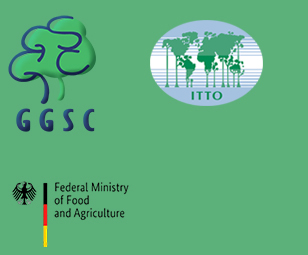
Brazil
Brazil's furniture industry affected by U.S. tariff policies
In August, Brazilian furniture and mattress exports declined by 14.5% compared to July. August was also the first month the U.S. 50% tariffs on Brazilian products were in effect, and as a result, exports of finished furniture to the United States decreased by 22% compared to July and 26% compared to the same period in 2024.
The impact was felt mainly in Santa Catarina, São Paulo, and Minas Gerais, which saw a reduction in sales to the U.S. market and a redirection to alternative destinations in Latin America, Europe, and the Middle East—especially Uruguay, Argentina, France, and the United Arab Emirates.
Brazil launches housing renovation program
On October 20, the Brazilian government announced the launch of the "Reforma Casa Brasil" (Brazil Housing Renovation Program), which is expected to allocate 40 billion reais in housing credit for families who already own homes but face structural or compliance issues to carry out renovations and expansions. If the entire 40 billion reais is disbursed within a year, the total estimated impact on the GDP of the construction sector is projected to reach 17.7 billion reais.
Each beneficiary family will be eligible to receive credit of up to 30,000 reais. According to the portal InfoMoney, beneficiaries will not receive cash. Instead, Caixa Econômica Federal, Brazil's federal savings bank, will be responsible for directly paying the amounts to officially accredited building material suppliers and service providers to ensure the proper use of funds.
Ana Maria Castelo, coordinator of construction projects at the Brazilian Institute of Economics at Fundação Getulio Vargas (FGV IBRE), pointed out that this program fills a long-standing policy gap. Previous government initiatives, such as "Minha Casa, Minha Vida" (My House, My Life), primarily focused on new home construction, whereas this program emphasizes improving the quality of existing housing.
Brazil to issue carbon credits through forest conservation and restoration projects
On October 17, President Luiz Inácio Lula da Silva signed a decree allowing forest projects to apply international certification methods to issue credits under the Brazilian Emissions Trading System (SBCE).
Accordingly, private projects participating in public forest management will have the right to choose certification methods under the REDD+ mechanism (Reducing Emissions from Deforestation and Forest Degradation), instead of only following the national regulatory system.
According to the Ministry of Environment and Climate Change of Brazil, this certification mechanism allows carbon credits to be internationally recognized and traded on the global market, while ensuring consistency with the national legal framework.
Previously, on October 15, Brazil established the Special Secretariat for the Carbon Market under the Ministry of Finance, aiming to promote sustainable development and complete the emissions reduction market by 2030.
Mexico
Mexican furniture industry hopes to strengthen regional cooperation in North America
Mexican furniture industry organizations stated that the North American furniture sector faces significant challenges from global competition, particularly from countries like China and Vietnam, which together account for 46% of global furniture exports.
Mercedes Abundis Sánchez, president of the Furniture Manufacturers Association of Jalisco (Afamjal), said that through cooperation under the framework of the United States-Mexico-Canada Agreement (USMCA), the furniture industry aims to increase regional exports by 15% by 2027. However, recent tariff measures implemented by the United States pose a threat to regional competitiveness, driving up production costs by 10% and impacting profit margins and competitiveness, especially in states like Jalisco, where furniture production is highly concentrated.
Faced with these challenges, the Mexican furniture industry has demonstrated a willingness to engage in dialogue and coordination with its counterparts in the United States and Canada.
Ecuador
Ecuador restores 2300 hectares of Amazon forest
Ecuador, under the leadership of its Ministry of Environment and Energy (MAE), is restoring 2,300 hectares of Amazonian forest to mitigate climate change, protect endangered species, and create new sustainable livelihoods for local Indigenous communities. Native species such as cedar, palm, and guava trees are now regrowing across lands that had been degraded by years of deforestation.
The forest restoration initiative is being implemented simultaneously across three provinces: Zamora-Chinchipe (1,000 hectares), Pastaza (688 hectares), and Morona-Santiago (668 hectares). The efforts are supported by partnerships with non-governmental organizations including Hivos, the Pastaza Afforestation Coalition, and the Arcoíris Ecological Foundation.
Peru overtakes Colombia as top buyer of Ecuadorian particleboard
Ecuador’s exports of particleboard (MDP) reached USD 128.2 million between January and August 2025, a 3.5% decrease compared to the same period in 2024, according to customs data.
The main change in trade flows was the rise of Peru as Ecuador’s top market, with imports climbing 26.7% to USD 55.1 million. Colombia, traditionally the largest buyer, fell 25.4% to USD 53.5 million, narrowing the gap between the two destinations.
The United States increased its purchases by 30.6% to USD 4.7 million, while Mexico grew 8.9% to USD 3.8 million. In contrast, Panama dropped 22.8% to USD 2.4 million, although sales to other countries advanced 16.3% to USD 8.8 million.

| E-mail:ggsc@itto-ggsc.org | Tel:86-10-62888626 |


Sigh Up for Emails |
|